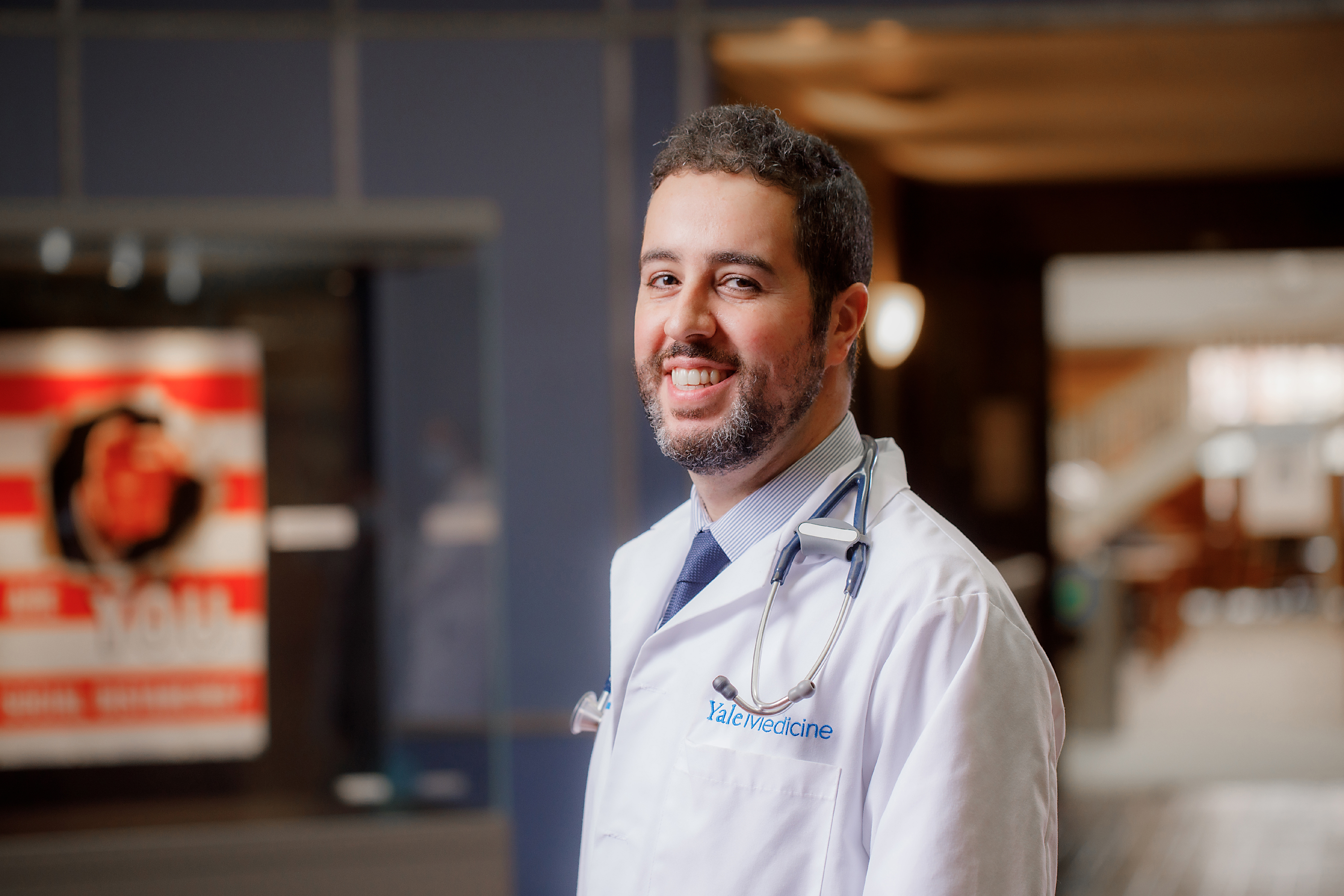As a former Yale fellow trained in infectious diseases and microbiology, Marwan Mikheal Azar, MD, draws on his own experiences in his new role as fellowship program director for the section of infectious diseases in the Department of Internal Medicine at Yale School of Medicine (YSM).

“We want our fellows to be fulfilled and happy, recognizing that no matter what we do, this is a very rigorous fellowship,” said Azar, an assistant professor (infectious diseases).
Azar’s clinical expertise is in transplant and infectious diseases with a focus on immunocompromised patients. His particular interest is in fungi diagnosis and treatment of fungal infections.
During the early days of the COVID-19 pandemic, he served on a committee led by Maricar Malinis, MD, associate professor of medicine (infectious diseases) and surgery (transplant) that developed an algorithm that standardized treatment for COVID-19 patients across the Yale New Haven Health System. He also was instrumental in diagnosing and treating a pneumocystis outbreak among transplant patients at Yale New Haven Hospital.
Azar got to work as fellowship director after his predecessor, Manisha Juthani, MD, took a leave of absence from YSM to serve as the commissioner of the Connecticut Department of Public Health.
“I hit the ground running,” he said.
The fellowship program has three clinical-track fellows who complete a two-year training program, and two academic track fellows, also known as T32 track fellows, who complete three, sometimes four years of training. Many of his initiatives address feedback from the fellows, with burnout mitigation measures that address the effects of the pandemic on the trainees rising to the top of the list.
As fellowship director, Juthani had offered fellows several weeks in outpatient clinics as a break from the hospital, followed by a weekend off. But after the Omicron surge, which was exhausting for health care workers including himself, Azar said, additional changes were needed. One of these was an “emergency week off” meant to alleviate the effects of the pandemic on the trainees, recognizing that “they need help in order to be able to help other people,” he said.
For years, the schedule for trainees called for 12-day stretches of work, followed by two days off. “Having been a fellow myself, I remember those 12 days as being really tough – like really intense days,” Azar said.
Thanks to second-year fellows, who agreed to take on additional shifts, he was able to add additional days off to interrupt the 12-day stretch. Azar credits Chief Fellow Mollie Tucker, MD, with organizing this effort with input from Jaimie Meyer, MD, MS, and Ann Fischer, MD the associate fellowship directors.
“We realized that nothing would be as effective as time off,” Azar said.
Another helpful change came when Infectious Diseases Chief Erol Fikrig, MD, and Clinical Chief Vincent Quagliarello, MD, approved an emergency service dubbed, “the solo service.” This service is for attending physicians who rotate onto a hospital shift in order to reduce the burden on fellows and has already had a significant impact on fellow wellness.
Azar and his team are working on other initiatives as well, including giving fellows greater exposure to microbiology and antimicrobial stewardship through new training blocks. He also is working with YSM colleagues to develop a fourth clinical track focusing on neuro-infectious diseases.
He and his team introduced Career Week, so first-year fellows can plan their second and third years, and adapted a mentor-advisor-coach (MAC) program from Seonaid Hay, MD, associate program director of the Internal Medicine Traditional Residency Program. The MAC program connects trainees to faculty members for mentorship and coaching, including advice on how to find a job when their fellowship ends.
The Infectious Diseases Section of the Department of Internal Medicine engages in a broad range of patient care, research, and educational activities. To learn more about their work, visit Infectious Diseases.